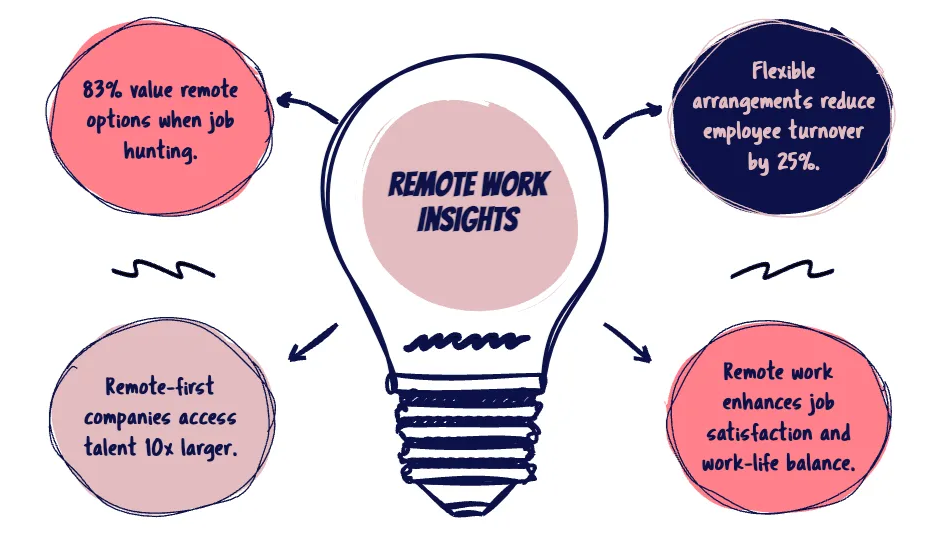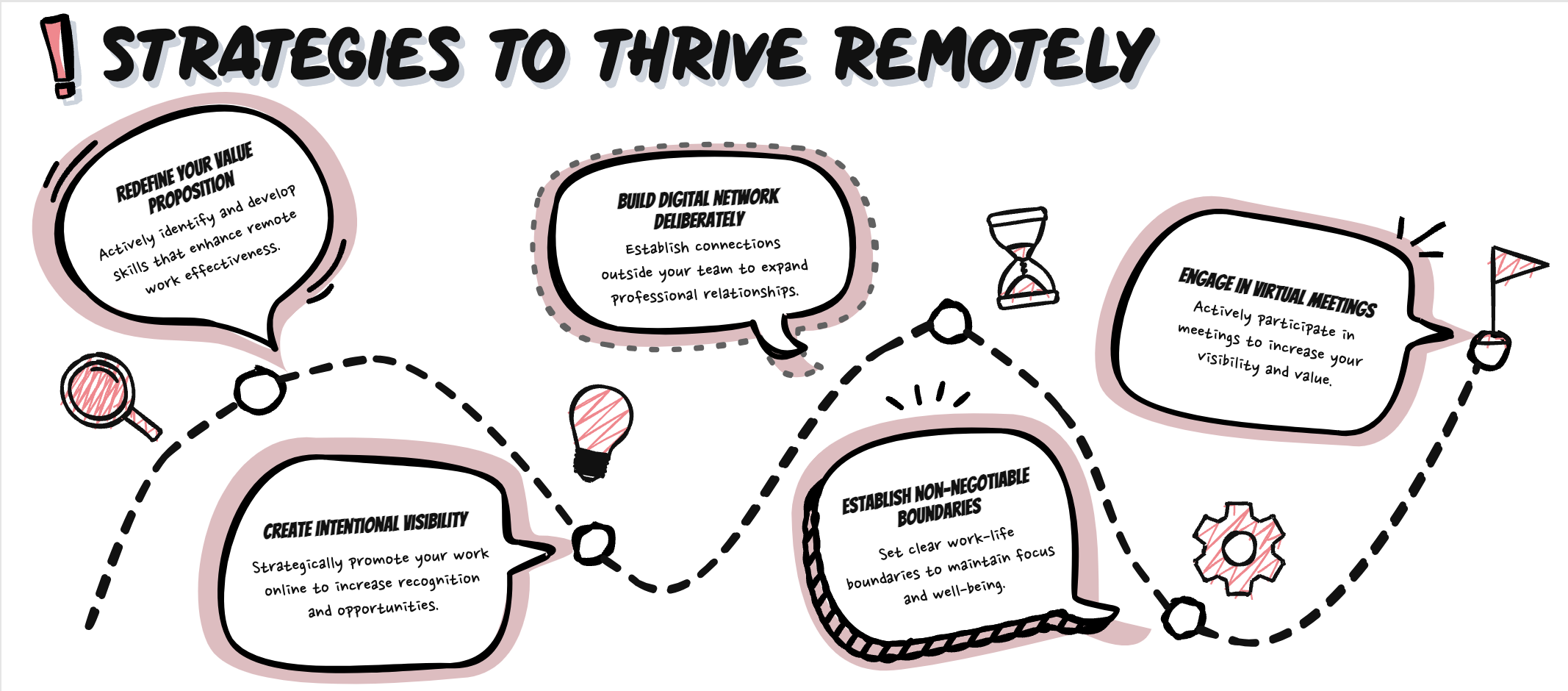ALorem ipsum dolor sit amet, consectetur adipiscing elit. Maecenas eu porta tellus. Mauris sit amet efficitur velit, vitae mollis ipsum. Cras a facilisis sem, vulputate accumsan diam. Praesent molestie, mauris nec dictum condimentum, sem metus lobortis orci, vitae auctor nunc ante et nunc. Phasellus dui ligula, hendrerit eget urna sed, porttitor sagittis libero. Nam tempor felis quis erat imperdiet pulvinar. Aenean euismod vitae nibh eu pretium. Cras quis elementum risus, nec ultrices felis. Nulla aliquet elementum erat et finibus. Quisque aliquam quam ultrices nibh congue sollicitudin
Remember that sinking feeling when you realised your commute was consuming 10+ hours of your week? Or the frustration of office politics derailing your productivity? Those pain points have disappeared for many of us – and we're not eager to bring them back.
Remote work isn't just a pandemic-era experiment. It's a fundamental shift in how we approach our careers, and the professionals who recognise this early will gain significant advantages.

"The greatest competitive advantage in today's business landscape isn't who has the best technology—it's who can adapt fastest to changing work environments." - McKinsey Global Institute, "The Future of Work After COVID-19" (February 2023)
Even traditional industries are witnessing this transformation. Financial services, government, and healthcare – sectors previously resistant to remote work – have integrated distributed workforce models with surprising success.
For insights on the specific skills valued in this new landscape, our article on High-Value Skills for Remote Work in 2025 offers a detailed roadmap for capability development.
When you're not physically present, how do you ensure your contributions are recognised? Remote workers often struggle with feeling invisible or overlooked for promotions simply because they lack face time with decision-makers.
The solution isn't working longer hours. It's working smarter through intentional communication and strategic self-promotion.
Many professionals find themselves questioning their value in remote environments – a classic symptom of imposter syndrome. Our guide on Why Imposter Syndrome Happens and How to Overcome It provides strategies for maintaining confidence while working independently.
Water cooler conversations and impromptu brainstorming sessions don't happen naturally in remote environments.
Developing genuine connections with colleagues requires deliberate effort when you can't rely on physical proximity to create bonding opportunities.
Your home office might be steps from your bedroom. Without clear separation between professional and personal spaces, many remote workers find themselves in a state of perpetual work – leading to faster burnout and diminished productivity.
For those struggling with maintaining boundaries, our article on 5 Signs You're Experiencing Burnout offers practical strategies to recognise and address early warning signs before they impact wellbeing.

The skills that made you successful in an office setting aren't necessarily the same ones that will help you excel remotely.
Take inventory of your strengths. Are you an exceptional written communicator? Do you excel at project management across time zones? Can you facilitate engaging virtual meetings?
Identify what makes you valuable specifically in remote contexts, then actively develop those capabilities.
Remote work success requires strategic self-promotion. This doesn't mean constant self-aggrandising, but rather:
Remote professionals need strong networks more than ever. Set specific networking goals:
Protect your wellbeing by creating structure around your remote work:
The most successful professionals in the coming decade won't be those fighting against remote work trends, but those who strategically position themselves to capitalise on this shift.
By addressing these challenges head-on and implementing these strategies, you won't just survive in a remote environment – you'll thrive in ways that weren't possible in traditional office settings.
Those without prior remote experience can still successfully transition to location-independent careers. Our guide on Remote Work Without Experience: Entry Points and Opportunities identifies accessible pathways and practical first steps.
Not sure where your natural talents align with remote work demands? The path forward starts with self-awareness.
Take our complimentary Remote Work Strengths Assessment to identify your unique advantages in a distributed workplace. This scientifically-validated tool will help you understand which of your innate abilities position you for remote work success – and provide actionable strategies to leverage those strengths immediately.
Access Your Free Strengths Assessment Now
“Raesent molestie, mauris nec dictum condimentum, sem metus lobortis orci, vitae auctor nunc ante et nunc ligula”



Your potential is infinite. Our mission is to activate and unleash it in the right environment.